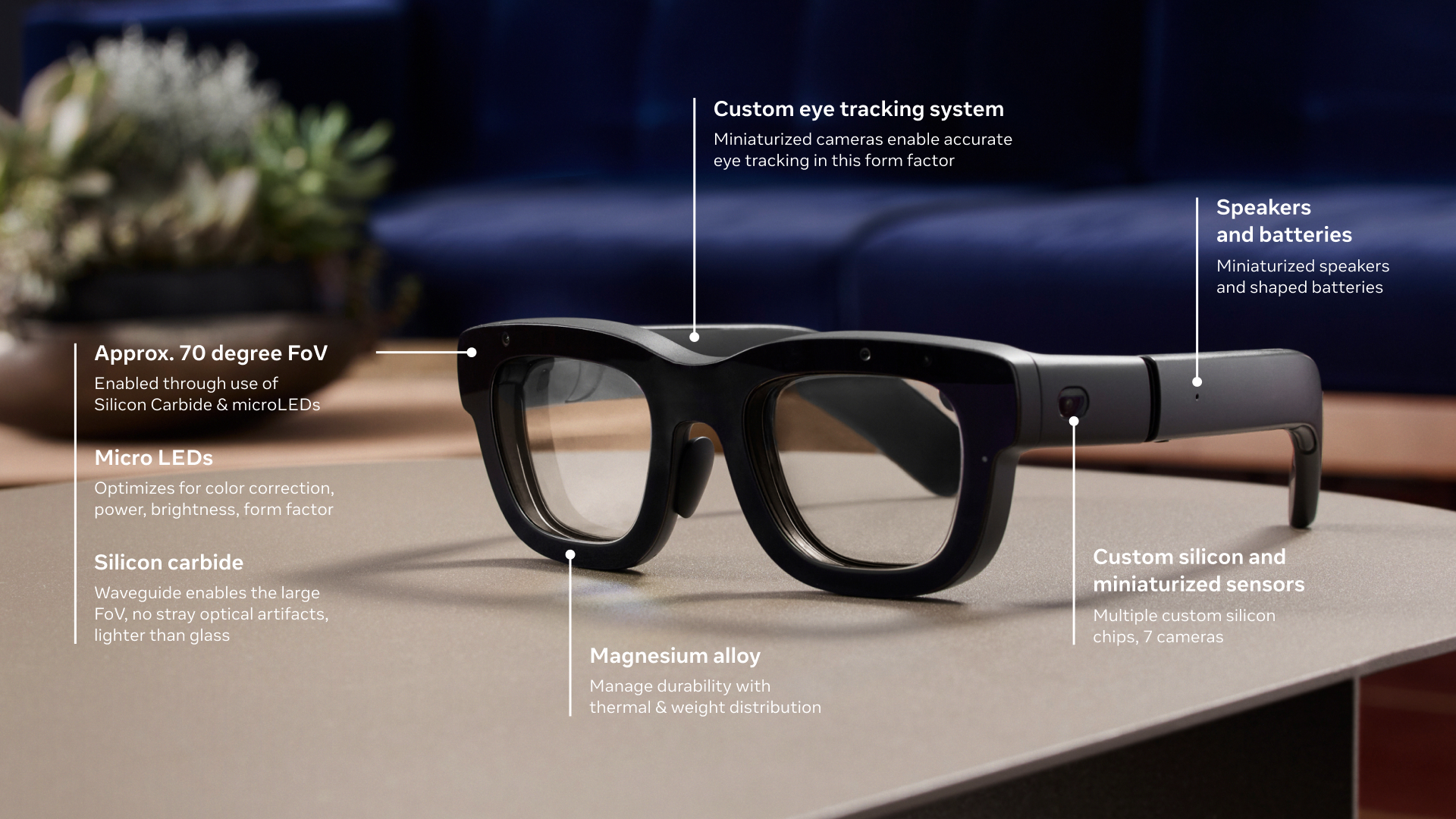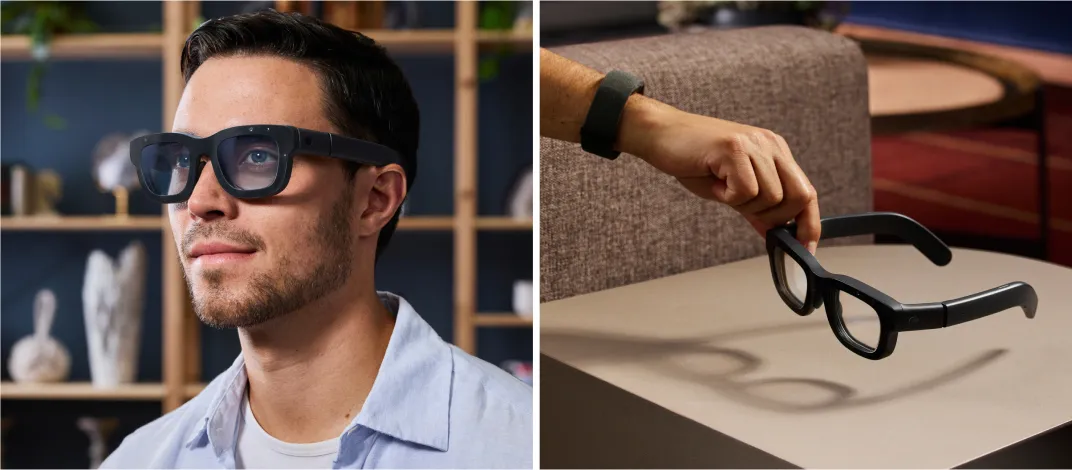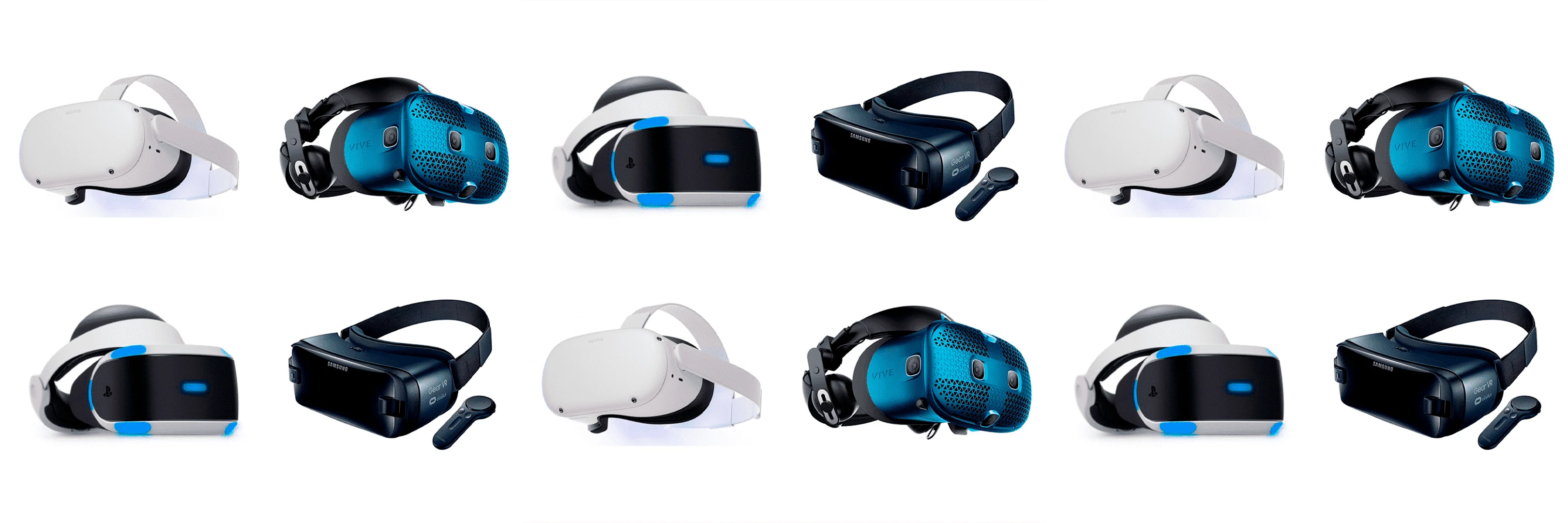The technological landscape is rapidly advancing, and during the Meta Connect 2024, it became clear that Meta is determined to lead the next revolution in how we interact with the digital world. The event revealed a wide range of innovations, but one of the most anticipated announcements was the launch of the Orion AR Glasses. These augmented reality (AR) glasses represent a significant leap, not only for consumers but also for the business sector, which can leverage this technology to transform how operations are conducted.
As the world adapts to hybrid work models and companies seek more efficient ways to collaborate and remain productive, augmented reality emerges as a powerful tool. The Meta AR Glasses are designed to seamlessly integrate the physical and digital worlds, allowing work interactions to transform into more dynamic and collaborative experiences. We're not just talking about enhancing video calls, but about an entirely new way of working, training, and connecting.

Meta's New AR Glasses: Technical Features
At the Meta Connect 2024, the Orion AR Glasses stood out as one of the most ambitious launches. These augmented reality glasses not only impress with their futuristic design but also with the technological innovations they bring. Designed to take digital interaction to a new level, the Meta AR glasses are equipped with a series of features that make them a powerful tool for both consumers and businesses.
Among the most prominent features is the holographic interface, a technology that allows digital images to be overlaid onto the real world with a remarkable level of detail and precision. Through this technology, users can visualize graphics, documents, or even 3D avatars, all within their field of view, without the need for additional screens. This opens up a range of possibilities in the business world, where real-time data visualization or remote collaboration becomes a more immersive and fluid experience.
Another key aspect is the hands-free control. The glasses are designed to facilitate interaction through gestures, voice commands, and even eye tracking. This capability allows users to manipulate digital interfaces without the need for keyboards or mice, which is especially useful in environments where precision and speed are critical, such as factories, medical centers, or executive meeting rooms.
Regarding processing power, the Orion AR Glasses are designed to be connected to the cloud, making them much lighter by relying on Meta’s infrastructure for complex tasks. This not only makes the device comfortable and efficient but also ensures a seamless experience when using data-intensive enterprise applications.
Finally, when comparing these glasses to products like the Apple Vision Pro, Meta seems to be betting on a more inclusive and accessible approach, with a strong emphasis on collaboration and social interaction. Although the technology is advanced, Meta aims to position the Meta AR glasses as a tool that also has practical and accessible applications for businesses of all sizes.

Business Applications of AR Glasses
Meta’s Orion AR Glasses are not just a technological novelty, but a tool with immense potential to transform the business world. As organizations seek to optimize operations and remain competitive in a digitalized environment, augmented reality (AR) is emerging as a disruptive solution for multiple industries.
Collaboration and Remote Meetings
In the realm of business collaboration and communication, Meta’s AR glasses take remote meetings to a new level of immersion. With the ability to visualize colleagues as avatars or holographic projections, employees can meet in virtual environments where objects and presentations come to life interactively. Imagine a meeting where you can not only see your team but also interact with 3D product models, manipulate shared documents, or visualize real-time data—all from the comfort of your office or even your home.
This is particularly relevant in today’s hybrid work context, where companies are seeking tools that facilitate effective remote collaboration. The Orion AR Glasses can provide an immersive virtual office experience, breaking down the barriers that arise in traditional video conferencing.
Applications in Retail
The retail sector is another area where Meta AR Glasses can make a difference. With these glasses, sellers can offer their customers an entirely new shopping experience by visualizing 3D products directly in the customer’s physical environment. Consumers could, for example, see how a piece of furniture would fit in their home or how an outfit would look on them without needing to try it on physically. Additionally, for retail workers, augmented reality can facilitate inventory management, real-time data visualization, and customer service assistance.
Manufacturing and Maintenance
In industrial sectors such as manufacturing and construction, the Orion AR Glasses can play a crucial role in optimizing workflows. Through augmented reality, technicians and operators can receive real-time visual instructions superimposed directly on the equipment or machines they are working with. This technology reduces human errors, speeds up assembly processes, and improves employee training, as they can receive step-by-step instructions without looking away from the task at hand.
Similarly, in maintenance tasks, workers can receive remote assistance from experts via the glasses, eliminating the need to send specialized personnel to the problem site. This not only optimizes time but also reduces operational costs for companies.
Health and Education
The healthcare industry can also benefit greatly from augmented reality. From training doctors to assisting during surgical procedures, the Meta AR glasses can provide visual guides that assist professionals in real time, reducing risks and improving precision in complex interventions. Additionally, medical simulations for training students can be much more realistic and practical by allowing direct interaction with virtual environments and bodies.
In the broader educational realm, the Orion AR Glasses offer nearly unlimited possibilities for interactive teaching, from visualizing scientific models to recreating historical environments, providing students with an immersive and enriching learning experience.
Training and Productivity
A critical area where augmented reality promises significant impact is in corporate training. With the Orion AR Glasses, companies can offer immersive training programs where employees learn through direct interaction with virtual tools, simulations, and practical scenarios. This not only improves knowledge retention but also reduces the time required to train new employees.
In summary, the Meta AR glasses offer a variety of business applications, from remote collaboration to training and productivity enhancement. Their ability to blend the physical world with overlaid digital information can radically transform the way companies operate, providing a competitive advantage in an increasingly digital world.
Future Impact of AR Glasses on Society
The Orion AR Glasses are not only designed to revolutionize the current business environment but also have the potential to transform many aspects of everyday life in the future. Augmented reality, driven by Meta’s innovations, has implications far beyond the office or meeting room, promising to change how we interact with information and the world around us.
Changes in the Way We Work
First, the way we work will likely be completely redefined. As more companies adopt tools like AR glasses to facilitate collaboration, training, and operational management, we will see a shift toward a more decentralized work environment. Traditional offices could take a back seat, and the idea of “going to work” will transform into simply connecting to the virtual space where colleagues, tools, and resources are available in real-time, regardless of physical location.
This change will allow companies to reduce costs, optimize processes, and tap into global talent, as geographic barriers become irrelevant. The Meta AR glasses will also contribute to a greater democratization of job opportunities, enabling more people to access highly skilled jobs from anywhere in the world.

Impact on Education and Training
In the educational field, the Orion AR Glasses could radically change how we learn and teach. Immersive virtual classrooms will not only enhance distance learning but also facilitate greater knowledge retention through direct interaction with educational materials. Students could, for example, learn history by exploring 3D recreations of ancient civilizations or understand science concepts through visualizations of phenomena that were previously only theoretical.
Additionally, companies can use these glasses to train employees with immersive simulations that replicate real-world working conditions. This will be particularly useful in sectors like healthcare, manufacturing, or aviation, where practical training is essential but costly or risky in the physical world.
Challenges and Ethical Considerations
Despite all the potential, the path toward the mass adoption of augmented reality also presents significant challenges. One of the main obstacles will be the technological infrastructure needed to support these immersive experiences. 5G networks will play a crucial role in the implementation of this technology on a large scale, but network coverage remains limited in many parts of the world.
Another challenge is the initial cost of devices like the Meta AR glasses, which may still be prohibitive for many small and medium-sized businesses or individual consumers. However, as we have seen with other emerging technologies, costs are likely to decrease as adoption and production increase.
Finally, we cannot ignore the ethical and privacy implications that come with the mass adoption of augmented reality. The ability of these glasses to capture data and overlay digital information onto the physical world raises questions about how this information will be managed and protected, and what measures companies will take to ensure user privacy.
Predictions for the Future
Despite these challenges, the future of AR glasses looks extremely promising. In the coming years, we are likely to see gradual adoption across various industries, with increased demand for augmented reality tools to enhance productivity, collaboration, and creativity. The Orion AR Glasses could be the starting point for a technological revolution that profoundly alters our relationship with the digital and physical worlds.
In the long term, the integration of AR into everyday life could become as common as the use of smartphones today. The ability to access information, interact with the environment, and perform tasks more efficiently will change the way we connect with each other and the world.
The launch of Orion AR Glasses at Meta Connect 2024 marks an important milestone in the evolution of augmented reality. With features such as holographic interface and hands-free control, these glasses have the potential to revolutionize both the business and personal worlds. Applications in sectors such as manufacturing, healthcare, education and retail are just the tip of the iceberg of what could be a sea change in the way we interact with technology.
As Meta moves towards creating its vision of the metaverse, Meta's AR glasses become a key pillar of that future, and companies that adopt this technology early will be able to reap the benefits of being at the forefront of an increasingly digital world.
SIMILAR CONTENT












 RETURN
RETURN







